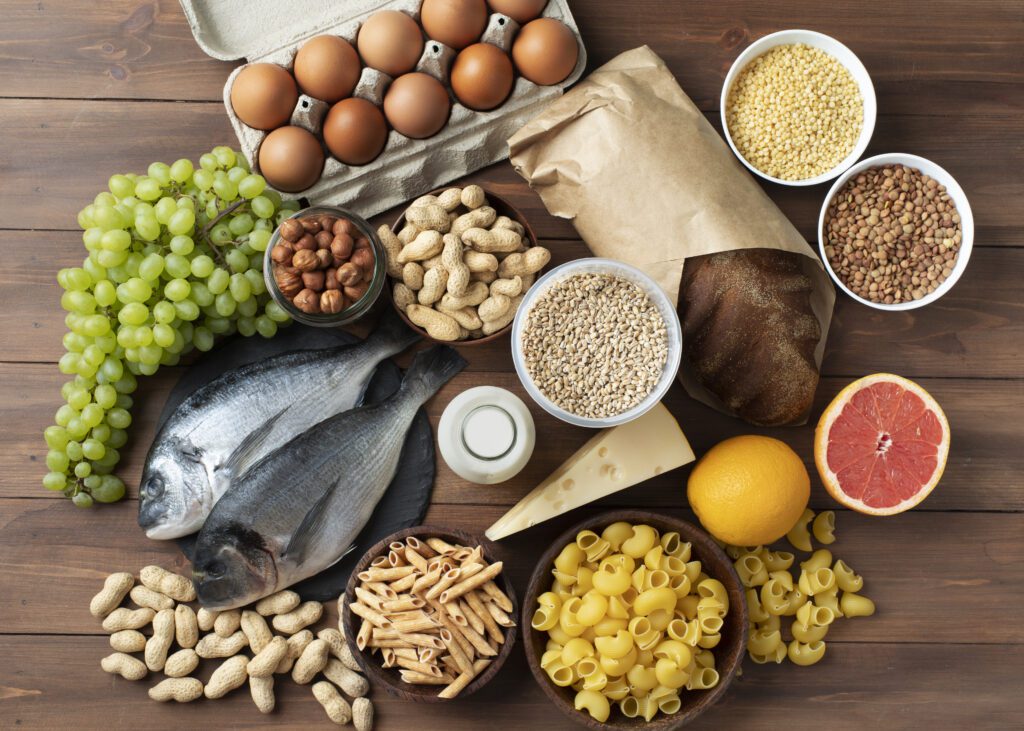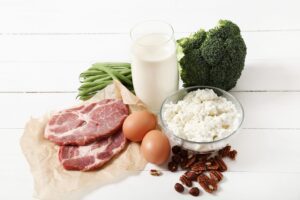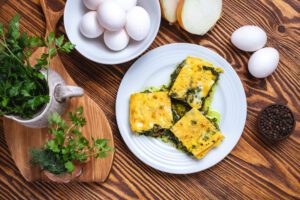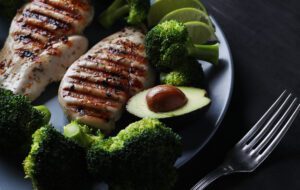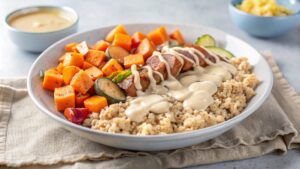Radiation therapy is an important part of cancer treatment, Therapy targets cancer cells and destroys them. However some side effects of this therapy, which affect on patient’s body and increase the nutrition needs. Proper radiation therapy nutrition helps to support the body and gives energy and important nutrients which helps to reduce side effects and recover the body.
Fascinating Fact: Over 40% of cancer patients are at threat of malnutrition, which affects general health and recovery, according to the American Cancer Society.
We are going to understand nutrition radiation therapy in detail and know how a balanced diet is important for health and recovery.
Table of Contents
Importance of Radiation therapy nutrition
Radiation therapy targets cancer cells and destroys them, but during this process, it will impact healthy cells too. So patients have common side effects like fatigue, inflammation, and weight loss. Proper radiation therapy nutrition helps to manage side effects and provides some other benefits:
- Maintaining energy level: During radiation therapy feeling tired is common, and this will impact your daily routine and activities. Having the right food you can maintain the energy level of your body, by this you feel active and energetic during radiation therapy.
- Makes immune system strong: Radiation therapy makes, your immune system may be weakened, which makes you vulnerable to infection. Some specific nutrients like vitamin C and Zinc support the immune system, which helps to avoid infection during therapy.
- Helps in tissue repair: Nutrients like protein help to repair tissue, which is damaged because of therapy. Protein speeds up the healing process and helps with cell repair.
- Reducing side effects: Nausea, appetite loss, and digestive problems can be controlled with a rich in nutrients and a well-balanced diet.
Therefore proper nutrition is very important during radiation therapy. Let’s understand which nutrients are very important and their sources.
Essential Nutrients for Radiation Therapy
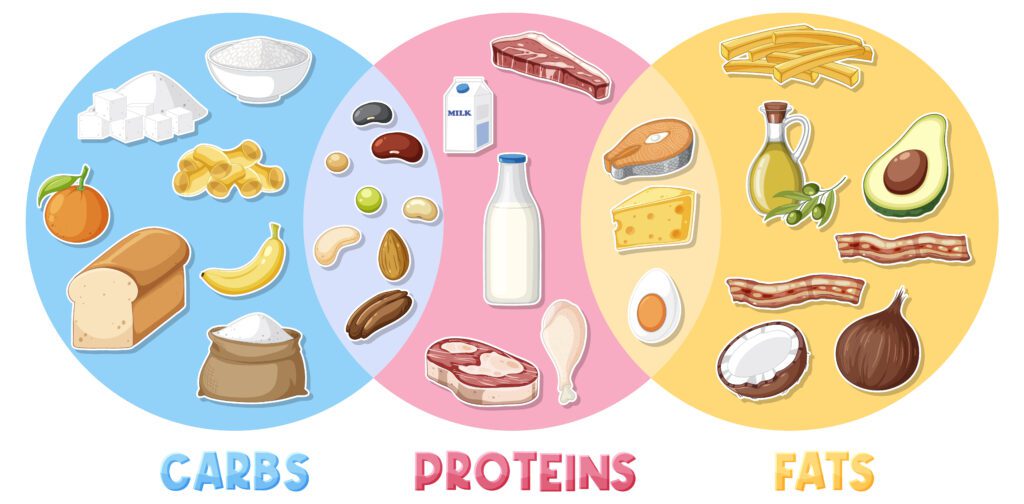
During radiation therapy body needs specific radiation therapy nutrition, which help the body for recovery and energy. Every nutrient has an important role, which we discuss below in detail.
1. Protein: Essential for tissue repair and recovery
Protein is very important for cancer patients during radiation therapy because it repairs tissue and prevents muscle loss. During radiation therapy, protein-rich food helps prevent muscle weight gain and weakness.
- Daily Requirement: For cancer patients, a protein intake of 1.2 to 2.0 grams per kilogram of body weight is recommended. This means a 60 kg person should take 72-120 grams of protein daily.
- Protein-Rich Foods: Lean meats like chicken, fish, eggs, dairy products, beans, and legumes are good sources of protein.
Pro Tip: Include protein-rich foods in your daily meal. If you have eggs or Greek yogurt for breakfast, you can also add chicken, tofu, or beans for lunch and dinner.
2. Carbohydrates: Essential for energy
Carbohydrates are the main energy source in our body, that helps to handle energy fatigue and maintain strength during radiation therapy.
- Best Choices: Whole grains (like oatmeal, brown rice, and quinoa), starchy vegetables (like sweet potato and squash), fruits, and legumes are good carbohydrate sources that stabilize blood sugar and provide energy.
- Avoid Refined Carbs: Avoid white bread, sugary drinks, and pastries as they can spike blood sugar and cause fatigue and energy crashes.
Pro Tip: Take complex carbs with protein or healthy fats for long-lasting energy. Try almond butter with oatmeal and avocado on whole-grain toast.
3. Fats: Healthy fats that reduce inflammation
Healthy fats are important for energy and provide fatty acids which helps reduce inflammation that comes from radiation.
- Healthy Sources: Avocados, nuts (like almonds and walnuts), seeds (like chia and flax seeds), olive oil, and fatty fish (like salmon and sardines) provide anti-inflammatory fats that protect the body.
- Limit saturated fats: Processed and fried foods and red meats contain high saturated fats that can increase inflammation.
4. Vitamins and minerals that support healing and immunity
Some vitamins and minerals are very helpful in managing the side effects of therapy and support the immune system
Vitamin C
- Importance: Vitamin C is an antioxidant that strengthens the immune system and protects cells from radiation damage.
- Sources: Oranges, strawberries, bell peppers, and broccoli contain good amounts of Vitamin C.
Vitamin E
- Importance: Vitamin E is also an antioxidant that protects cells from oxidative stress.
- Sources: Nuts (like almonds and sunflower seeds), and green leafy vegetables are good sources of Vitamin E.
Vitamins B
- Importance: Essential for energy production and cellular repair.
- Sources: Whole grains, eggs, and leafy greens contain B vitamins in sufficient amounts.
Zinc
- Importance: It is essential for immune support and healing.
- Sources: Zinc is found in shellfish, red meat, and fortified cereals.
Vitamin D
- Importance: It is very important for bone health and immune support.
- Sources: Sun exposure and fortified dairy products are good sources for it.
Pro tip: Eating a variety of fruits and vegetables daily will provide you with essential vitamins and minerals.
Diet adjustments to manage common side effects of radiation therapy
Radiation therapy has some common side effects which affect your daily life and nutrition. Let’s learn how you can modify your diet to deal with them.
Managing Fatigue
Fatigue or fatigue is a common side effect of radiation therapy. A balanced and full-of-nutrient diet is important to maintain the energy level of your body.
- Hydration: Lack of water can worsen fatigue. Try to drink 8-10 glasses of water daily.
- Energy-Dense Snacks: Include foods like nut butter, dried fruits, and whole grains in your snacks.
Pro tip: Set routines for water and snacks every day to keep you feeling hydrated and full of energy.
Handling Nausea and Appetite Loss
Nausea and appetite loss are quite common during radiation therapy. Sometimes specific foods and eating routines can help to control nausea.
- Small, Frequent Meals: Instead of one large meal, eat 5-6 small meals daily so that your stomach feels light and nausea is less.
- Ginger and Peppermint: Research suggests that ginger can control nausea (National Cancer Institute) and peppermint tea soothes the stomach.
Pro tip: Go for bland and easy-to-digest foods like crackers and oatmeal when you’re napping.
Mouth sores and sore throat
Mouth sores and sore throat are also common side effects of radiation therapy, which can make eating painful.
- Soothing Foods: It is better to consume soft and non-acidic foods like smoothies, soups, and mashed potatoes.
- Acidic foods like tomato sauce and citrus fruits can further irritate mouth sores, so avoid them.
Pro tip: Blend fruits and vegetables to make a smoothie so you can get essential vitamins and minerals.
Digestive issues: diarrhea and constipation
Radiation therapy can impact the digestive system, which can cause diarrhea or constipation.
- Diarrhea: Eating a low-fiber and bland diet (like bananas, rice, and toast) helps in diarrhea.
- Constipation: Gradually increase fiber intake and drink more water so that the fiber moves easily in your digestive tract.
Pro Tip: Listen to your body’s symptoms and changes in your diet.
Foods to avoid during radiation therapy
Some foods can increase the side effects of radiation therapy. Here are some foods that should be avoided:
- Highly Processed Foods: Processed foods contain unhealthy fats and preservatives that can worsen inflammation.
- High-Fiber Foods (during diarrhea): If you have diarrhea, avoid raw vegetables and legumes.
- Sugary Beverages: Sugary drinks can cause an energy crash. Drink water or herbal teas instead.
Pro tip: Prefer natural, whole foods over processed foods.
Sample Meal Plan for Radiation Therapy Patients
- Breakfast: Oatmeal with almond butter, a banana, and chia seeds.
- Mid-Morning Snack: Greek yogurt and blueberries.
- Lunch: Baked chicken breast with quinoa and steamed carrots.
- Afternoon Snack: Spinach and mango smoothie with almond milk.
- Dinner: Grilled salmon, mashed sweet potatoes and sautéed spinach.
- Evening Snack: Cottage cheese with strawberries or nuts.
Pro tip: Be flexible with your meals and tailor your diet based on your symptoms.
Conclusion
It is important to take care of nutrition during radiation therapy. Include Protein, healthy fats, and vitamins in your diet, they help recover and support overall health.
Consult your dietitian before change in your diet, it helps you in this tough time.

